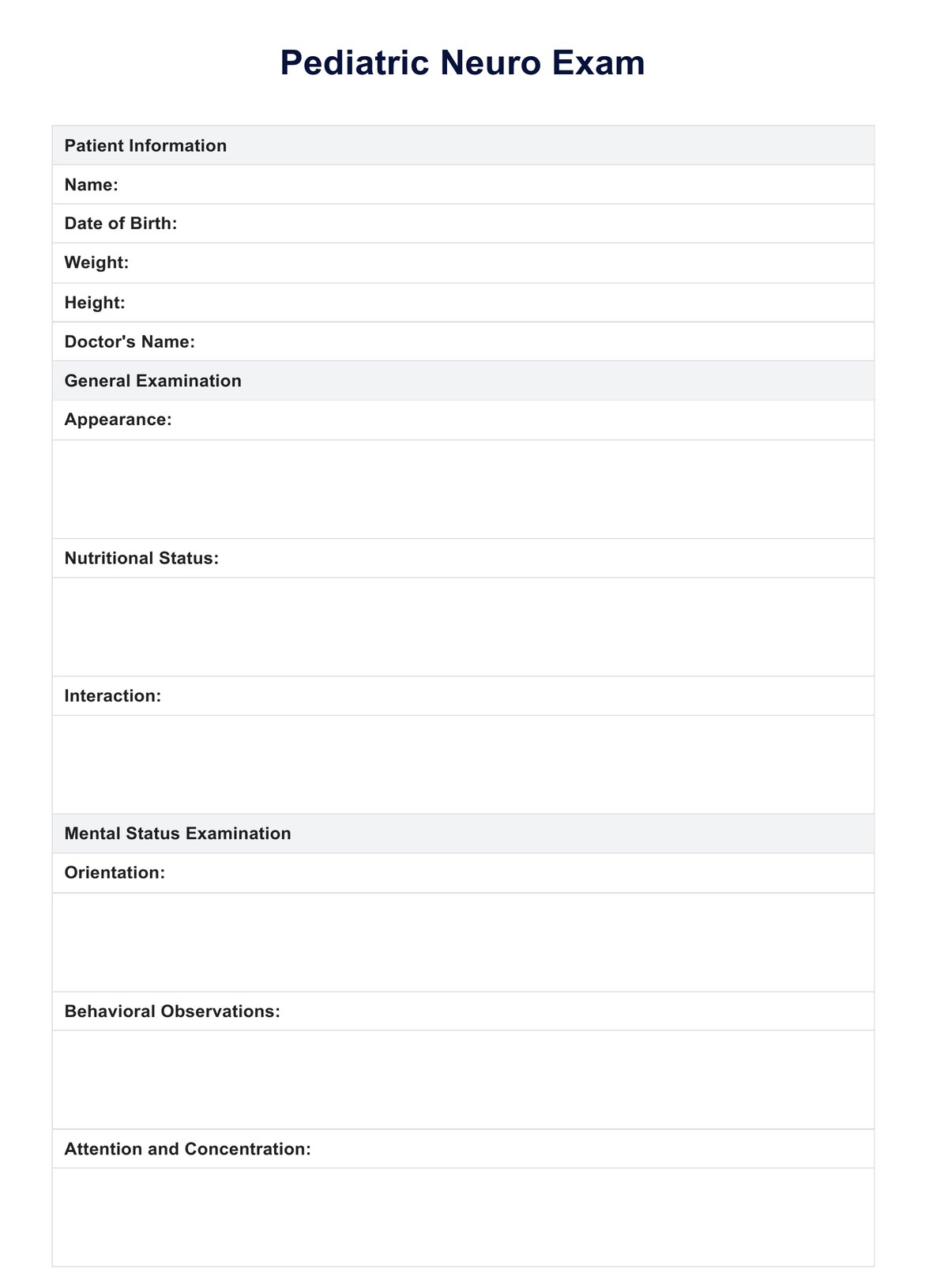The duration of a pediatric neurological exam varies but typically ranges from 30 minutes to an hour. The length depends on the complexity of the assessment and the specific concerns being addressed.

Pediatric Neuro Exam
Looking for a comprehensive pediatric neuro exam guide? Download Carepatron's free PDF example to learn about the essential components and assessments involved in a pediatric neuro exam.
Pediatric Neuro Exam Template
Commonly asked questions
A pediatric neurological exam is typically conducted in a healthcare provider's office, clinic, or hospital setting. The controlled environment ensures accurate observations and access to any necessary equipment.
Yes, neurological exams can be adapted for infants. The assessment may include observations of muscle tone, reflexes, and responses to stimuli. However, the approach is tailored to the developmental stage of the infant.
EHR and practice management software
Get started for free
*No credit card required
Free
$0/usd
Unlimited clients
Telehealth
1GB of storage
Client portal text
Automated billing and online payments











